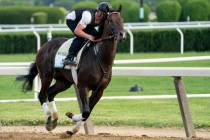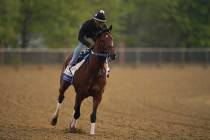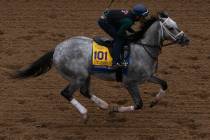Horseplayers get tax reform first as IRS revises parimutuel payout regs

The taxman will still cometh, but not nearly so often.
That was the great news for horseplayers delivered this week by the National Thoroughbred Racing Association after the U.S. Treasury Department and Internal Revenue Service agreed to change reporting and withholding regulations on parimutuel wagers.
The change, which also will apply to wagers on dog races and jai alai, boils down to this: The IRS previously calculated multi-race or multi-horse wagers as a single bet of the base amount. In other words, if you bet a $148 Pick 6 ticket and were fortunate enough to collect, that was considered a $1 bet because all of the losing combinations were tossed. As a result, big scores routinely exceeded the IRS’ $600 reporting and $5,000 withholding thresholds, meaning lots of paperwork and possibly the government keeping a sizable chunk of your winnings.
Now that $148 bet will be considered as a single $148 ticket, not 148 individual $1 bets. Wagers that pay off at odds of 300-1 and have a payout of $602 or more are still reported to the government, but the bettor won’t receive a W-2G nor have money withheld unless the payoff is more than 300 times the total amount bet — in this case a whopping $44,548.
This is obviously a big win for players, but it’s also a huge shot in the arm for the racing industry. The NTRA says it could increase the amount wagered on U.S. parimutuel racing by as much as 10 percent annually, or upward of $1 billion.
The change was published Wednesday in the Federal Register and will take effect no later than Nov. 14, but individual operators may make the change sooner. So be sure to ask your friendly neighborhood race book or advance deposit wagering provider when they will switch.
And whatever you do, don’t bet handfuls of single tickets when you can combine them!
#RJhorseracing featured races
The Review-Journal’s interactive handicapping corps is off to the Great Race Place this weekend as Santa Anita opens its fall meeting. We’ve got Saturday’s $300,000 Awesome Again Stakes (G1) and the $70,000 Unzip Me Stakes in our sights.
This edition of the Awesome Again, a 1 1/8 mile test for 3-year-olds and up, hasn’t drawn the sort of field you would expect for a Grade 1 race positioned to serve as a Breeders’ Cup prep. In fact, a fair percentage of our group found it a race worth passing.
“How can we tell who’s well meant?” handicapper Les Izmore asked. “Several entrants are second off a layoff, hard to interpret at this time of year. And Baffert has an uncoupled entry, which is now a regular thing in today’s era of short fields. This is the kind of race where a pro takes one look and turns the page.”
Those who ventured an opinion sided with 2-1 favorite Cupid, a Bob Baffert-trained 4-year-old, believing he can overcome a wide draw in the 8 post. Breaking Lucky (5-1) and Mubtaahij (4-1), the other Baffert trainee, rounded out the voting.
I’ll side with Mubtaahij, the most accomplished closer in the field.
Our handicappers were more enamored of the Unzip Me Stakes, a 6½-furlong turf dash down the hillside for 3-year-old fillies. The balloting was all over the place, generally indicative of a good betting race.
Our team went with Phil D’Amato-trained Spin Me a Kiss, a tempting 8-1 in the morning line, followed by Kenda (6-1) and Kathy’s Song (6-1). My selection is Kenda, but I also like the speedy Little Jude (9-2) and Tapped (10-1) for the exotics.
You can join the fun next week. Simply email me or follow me on Twitter to receive an alert Wednesday when the free past performances are posted. Then make your picks and offer a bit of analysis or wagering advice by 5 p.m. Thursday, and you could be featured in next Friday’s column.
Contact Mike Brunker at mbrunker@reviewjournal.com or 702-383-4656. Follow @mike_brunker on Twitter.
Ellis Starr’s Unzip Me Stakes analysis
Isa Firecracker ran the race of her life last month at Golden Gate (101 Equibase figure) and was a stakes winner as a 2 year old. She’s bred to like the turf and is likely to be ignored in the wagering. Kathy’s Song won in second start for trainer Richard Baltas, also with a 101 figure, and cuts back from a route to a sprint. Tapped drops out of the Grade 1 Del Mar Oaks and cuts back to a sprint, having earned both career wins sprinting. She flew home but too late in her only turf sprint, against older, one before last.
Ellis Starr is the national racing analyst for Equibase. Visit the Equibase website for more on the race or to purchase handicapping products.












